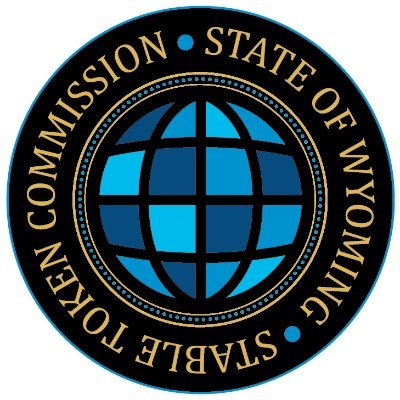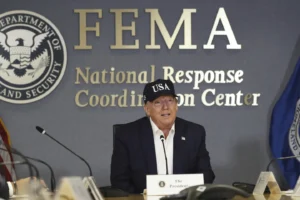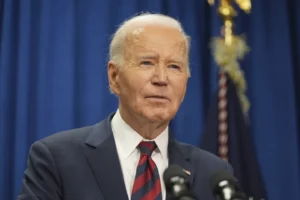Wyoming Will Likely Launch Its Stable Token on Ethereum Network
Token may not be fully developed until mid-2024
- Published In: Politics
- Last Updated: Oct 21, 2023

Wyoming State Treasurer and Stable Token Commissioner Curt Meier said the state should use the Ethereum blockchain, calling it “the clear favorite in this race.” (Image courtesy of the Wyoming Stable Token Commission via Zoom)
By CJ Baker
Special to the Wyoming Truth
Wyoming is pushing forward with its efforts to launch a digital version of the dollar, with state officials recently hiring an executive director and outside legal counsel for their planned stable token. Now, they’re on the verge of picking a blockchain.
While no decisions were made at Thursday’s meeting of the Wyoming Stable Token Commission, a majority of commissioners indicated they would like to start out on Ethereum.
“I think the decision’s inevitable,” said State Treasurer and Commissioner Curt Meier.
Other chains may have “slicker, better features,” Meier said, “but they just don’t have the adoption” of Ethereum, a decentralized blockchain that trails only bitcoin in market capitalization.

The commission’s new executive director, Anthony Apollo, said the state should consider using multiple chains in the future, but recommended Ethereum for an initial test launch. Beyond being compatible with other chains, “the bulk of users, the bulk of development, and the most stress testing of any given ecosystem has happened on Ethereum,” he said.
Gov. Mark Gordon, who chairs the commission, agreed that Ethereum is “probably the best to go to,” but he recommended more discussion.
“This is the backbone, essentially, of what this stable token is going to be,” Gordon said.
Stablecoins like Wyoming’s are meant to give blockchain users a reliable way to transfer value in the digital space. And unlike volatile cryptocurrencies such as bitcoin, stablecoins remain pegged to an asset, like the U.S. dollar.
Each of Wyoming’s stable tokens would be purchased with and backed by $1 in the real world. While customers are using the digital tokens, the state will invest the cash in short-term Treasury bills and keep the profits.
The project could prove lucrative if interest rates remain high and if Wyoming’s token is widely adopted. But the state faces many competitors in the $124 billion stablecoin market. While token boosters have discussed its potential for facilitating faster, cheaper and more efficient retail payments, the commission has yet to decide how it will be used. That’s among a host of hurdles and decisions that remain TBD, including which blockchain(s) to use.
Blockchain battles
Input Output Global (IOG), which developed the Cardano blockchain and is domiciled in Wyoming, has offered to develop the token for just $1, citing the project’s importance to the state. In August, an IOG representative also discouraged the commission from using Ethereum, which prompted an Ethereum community member to travel from the Cayman Islands to Laramie to advocate for the chain in September. That rebuttal, in turn, drew a critique from IOG CEO Charles Hoskinson, who co-founded Ethereum before leaving to launch Cardano.

In remarks at last month’s Wyoming Blockchain Stampede, Hoskinson said the Ethereum advocates tried turning the discussion into “an Ethereum versus Cardano versus Bitcoin thing.”
“And I’m like, guys, Wyoming doesn’t work for a f—ing cryptocurrency, OK? It’s going to use this technology to do something for the benefit of its people. That’s the intent,” said Hoskinson, who’s been a big supporter of the state’s digital asset push. “Don’t come here and try to use Wyoming as an advertisement to get your token price higher or advertise your company.”
State officials have welcomed industry expertise and involvement — it will be particularly important when they solicit and review proposals for developing the token, said Commissioner David Pope — but they want to prevent anyone from gaining unfair advantage. A new code of conduct requires those assisting the commission to recuse themselves when they have “a clear and material conflict.”
The commission continues to receive offers of assistance, with two officials from Emurgo — the commercial arm of Cardano — traveling from Singapore and Tokyo to attend Thursday’s meeting in Cheyenne. Emurgo COO Nikhil Joshi said his company could help boost Wyoming’s trade and economic activity in Asia, where there’s a growing appetite for blockchain technology.
“… we’re very keen to help you explore how to use the technology to bolster that trade corridor,” Joshi said.
Emurgo planned to launch its own dollar-backed stablecoin this year, but paused the project in July, explaining that “the current timing and regulatory uncertainty in the U.S. pose unforeseen challenges.”
For example, with no explicit rules from Congress, it’s unclear if the Securities and Exchange Commission will regulate stablecoins and who can issue them, SEC Commissioner Hester Peirce said last month. The Wyoming Attorney General’s Office is preparing an analysis of whether the state can legally issue the stable tokens; the commission has also hired outside counsel, agreeing to pay the global firm Paul Hastings up to $100,000.
Continuing scrutiny
The crypto industry has been particularly frustrated with the Biden administration, which launched a regulatory crackdown in the wake of multi-billion failures and fraud in the space. But Scott Meier of the Wyoming Bankers Association — who’s been skeptical of the stable token effort — believes the federal scrutiny of cryptocurrencies goes beyond the current administration.

Given recent reports that Hamas has received millions of dollars’ worth of crypto donations, “I can almost bet you that nothing will happen regarding cryptocurrency in the banking world, at least in the near future,” he predicted Thursday.
Wyoming officials have said they’ll follow “know your customer” and anti-money laundering laws to prevent the state’s tokens from falling into the hands of terrorists — and the state’s pitch for the token is built on it being the first trustworthy stablecoin.
However, there’s inherent tension in the state government issuing a cryptocurrency. As , one aim of the crypto movement is to enable transactions that are free from governmental interference. Apollo said Thursday that those who use Wyoming’s stable token shouldn’t have to worry about anyone reviewing their transactions, and he said the commission should eventually look at blockchains that offer more privacy than Ethereum.
“It shouldn’t matter if you’re buying bubblegum or bullets: No one should know what you as a private citizen are purchasing,” Apollo said. He said he was paraphrasing earlier comments from Treasurer Meier, who’s criticized credit card companies’ efforts to track firearm purchases.
The Attorney General’s Office and Apollo must update the Legislature on the project by Nov. 1, and the commission must “endeavor” to issue the first token by the end of the year. Apollo said it’s still possible to launch a “proof of concept” alpha test by January, but the commission would need to choose a blockchain soon.
The director’s tentative development roadmap suggests fully launching the stable token by mid-2024.













